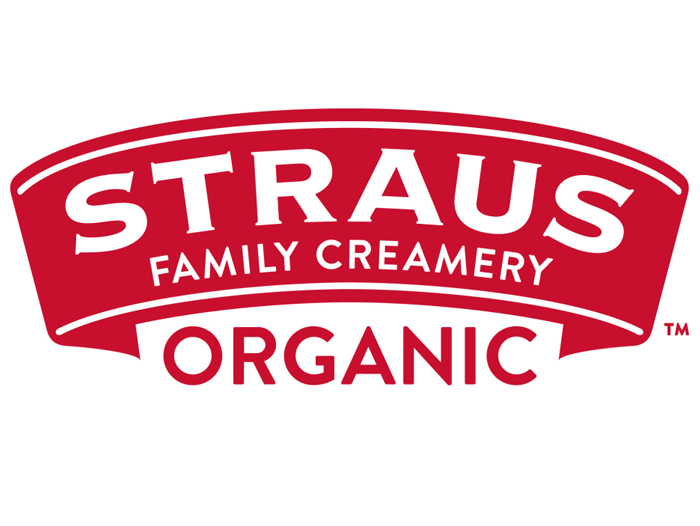Straus Family Creamery Supports the Food and Drug Administration’s Proposed Labeling Recommendation
May 17, 2023 | 6 min to read

PETALUMA, Calif. – Earlier this year, the Food and Drug Administration (FDA) published draft guidance for public comment to help establish appropriate labeling of plant-based products that are marketed and sold as milk alternatives. The FDA is now recommending that alternative milk products with the word “milk” in their names, and which have a nutrient composition different from dairy milk, include a voluntary nutrition statement explaining how the product stacks up to animal-derived milk. Straus Family Creamery supports this FDA recommendation.
Through solicitation of open comments in 2018, the FDA determined that consumers have a general understanding that plant-based milk alternatives do not contain milk, however, many may not be aware of or understand the nutritional differences (e.g. oat milk may contain some added calcium and may be consumed as a source of this essential mineral, but its overall nutritional content is different from milk). This nutrient statement will help consumers understand and make informed choices regarding the nutritional differences between plant-based products labeled with “milk” and animal-derived milk.
Plant-based beverages, typically made for lactose-intolerant people or those who avoid animal products, often contain added sugar (to improve taste), oils like rapeseed oil (known as canola oil), thickeners, gums and stabilizers (for a creamier texture and taste). Some plant-based formulas also contain synthetic dairy proteins or unlabeled genetically modified organisms (GMOs), according to the Non-GMO Project.
For many consumers, plant-based alternatives cannot compare to the taste and culinary performance of real milk. The sweet grasses from the lush green coastal pastures in Northern California make all the difference in the fresh, pure taste of Straus organic milk which contains only one ingredient: organic milk. All of Straus’ dairy products start with organic milk and are crafted with pure, simple ingredients and minimally processed.
High in quality protein, Straus organic milk is considered a complete protein because it contains all nine essential amino acids the body needs. Straus organic whole milk has nine grams of protein per 8 ounce serving, and 12 grams of protein in organic reduced fat milk, helping the body build and repair muscle and make cells, including those used for immunity. Soymilk is the only plant-based beverage with comparable protein content (eight grams per 8 ounce serving). Oat and pea beverages are not considered a complete protein as they must be accompanied by a variety of other protein-based foods throughout the day.
The 2020-2025 U.S. Dietary Guidelines recommend people eat three servings of dairy, including milk, daily to help provide nutrients of concern to the diet – like calcium, vitamin D, and potassium. There is a difference in the quality of dairy that is sourced from organic farms than that which is sourced from conventional (non-organic) farms. Studies have found that organic milk has a higher nutritional content, more healthy omega-3 fatty acids (about 62 percent), and more disease-fighting antioxidants than non-organic milk. Choosing organic also means supporting farming practices that prohibit the use of pesticides, antibiotics, hormones, herbicides, synthetic fertilizers, and GMOs. Because of these practices, no pesticide or antibiotic residues are found in organic milk. (Click here to download a new infographic that describes Straus organic milk’s nutritional and environmental benefits.)
Research also shows that healthy soils produce more nutritiously dense food while regenerating the soil and reducing greenhouse gas emissions. Agriculture-based climate solutions have been a priority for Straus Dairy Farm since it became the first certified organic dairy west of the Mississippi River, and Straus Family Creamery launched as the first 100 percent certified organic creamery in the United States in 1994.
In late 2023, Straus Dairy Farm’s organic milk will have a climate-positive footprint, similar to non-dairy, plant-based alternatives, and a lower climate impact than soymilk. This is based on a greenhouse gas footprint that includes agriculture and food manufacturing emissions. The goal is to have the 11 other family-owned, small-scale organic farms that supply Straus Family Creamery be carbon neutral by 2030.
“By creating a carbon-neutral dairy farming model, we are reducing our climate impact while also providing high-quality nutritious food,” said Albert Straus, founder and CEO, Straus Family Creamery. “We are changing the way farming is practiced in the United States. This is essential to fulfilling our mission to sustain family farms, help our communities and the next generation.”
The FDA public comment period for the draft guidance entitled “Labeling of Plant-Based Milk Alternatives and Voluntary Nutrient Statements; Draft Guidance for Industry,” was recently extended. The new deadline has not been determined yet. Click here to follow docket number FDA-2023-D-0451 for updates.
About Straus Family Creamery
Based in Petaluma, CA, Straus Family Creamery is a Northern California certified organic creamery offering minimally processed milk, cream, yogurt, ice cream, butter, sour cream, and a variety of wholesale and specialty dairy products distributed throughout the Western United States. The Creamery makes minimally-processed dairy products from organic milk supplied by family farms in Marin and Sonoma Counties, including the Straus Dairy Farm, which is the first certified organic dairy farm west of the Mississippi River.
Straus Family Creamery, the first 100 percent certified organic creamery in the United States, continues to make business decisions based on its mission to help sustain family farms, revitalize rural communities, and protect the environment. Straus Family Creamery is committed to creating a carbon-neutral dairy farming model on the Straus Dairy Farm by 2023 and is helping its supplying dairy farms reach carbon neutrality by 2030. The family-owned business sustains collaborative relationships with the family farms that supply it with milk, offering stable prices and predictability in what can otherwise be a volatile marketplace. Learn about the Straus difference at StrausFamilyCreamery.com.
